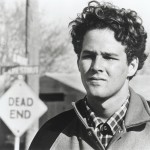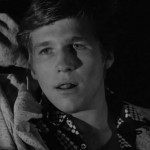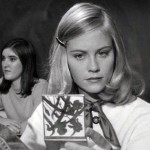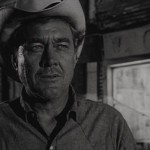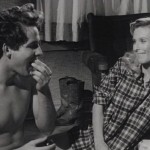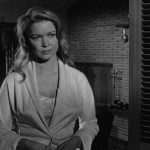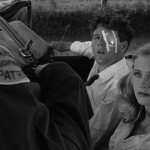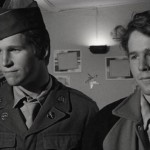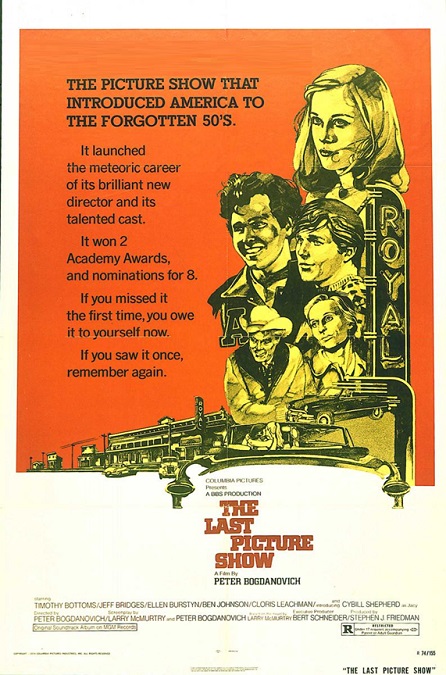
The Last Picture Show – 1971
The title of the film, The Last Picture Show, refers to the closing of a small movie theatre. It shows its final film, indicative of the death of the town. You can tell, right from the beginning of the film, that the sleepy little town with its dreary inhabitants, its poor and failing businesses, and its general feeling of malaise and regret is in danger of becoming extinct. Its few surviving citizens feel little hope for the future, and look at the past with nostalgia tinged with a mixture of fondness and bitterness. The fact that it was filmed in black and white seemed to enhance the dismal and desolate feel of the film.
Sure, there were young people, but even they were growing up and longing to leave in search of something better. There is nothing new to experience, and no interest in improving anything. This is evidenced in the subtle little fact that the high school football team keeps having the same problem every year. The adults complain that the boys don’t know the fundamentals of the game. They don’t know how to tackle. It might seem insignificant, but I thought it was a clever way to show the general feeling of apathy in the young men of the town, their lack of drive or even enthusiasm for not only the sport, but for life in general. But such boredom can easily turn to delinquency.
Playing the lead was a handsome young man named Sonny, played by Timothy Bottoms. His best friend, Duane, played by Jeff Bridges, was not really a nice person, but then again, neither was his girlfriend Jacy, played by Cybill Shepherd. A running theme in the film is the transition of these students from teenagers into adults. Part of that is their sexual awakenings. Duane is very possessive of Jacy, even after she breaks up with him, at which point, she becomes sexually promiscuous. Sonny starts having an affair with his football coach’s wife, Ruth, played by Chloris Leachman, who is sexually frustrated by her homosexual husband’s disinterest.
But there were two characters who, for me, stood out as having the most interesting story line. Actor Ben Johnson played the part of Sam the Lion. He owned three major establishments in the desolate little town: the pool hall, the diner, and the cinema. As long as the three businesses kept running, the town was able to hold on to its reason to exist. But that is only part of what made his character so interesting. In a fit of nostalgia, he tells Sonny of an affair he’d had in his youth with a beautiful young woman who was now married.
Sonny later learns that the unnamed woman was Lois Farrow, Jacy’s mother, played by Ellen Burstyn. More than once, Lois tells of how she is bored and dissatisfied with her life and how she regrets her choice of husband. She is having an affair with a man who eventually has sex with Jacy. Both Burstyn and Johnson stood out to me as exceptionally good actors.
There were two members of the cast who won Oscars for their performances: Ben Johnson and Chloris Leachman, and I thought they were very well deserved. Their performances were brilliant, each played with passion and poignancy. Johnson had both gentleness and strength, and Leachman had fragility and vulnerability. The each took home awards for Best Supporting Actor and Best Supporting Actress.
While Sam lived, the town lived, but everything changed when he died. In his will, he left the pool hall to Sonny, the diner to its only waitress, Genevieve, played by Eileen Brennan, and the cinema to the popcorn lady, Miss Mosey, played by Jessie Lee. After Sam’s death, all three businesses seemed to fail, and as they died, so did the town. It was actually very sad. But the final nail in the coffin was when Sam’s mentally disabled son was hit by a truck and killed in the street, and nobody but Sonny seemed to care.
The film was a wonderful portrait of a dreary Texas town in its last days coupled with the last days of youth and innocence for the three main characters, Sonny, Duane, and Jacy. Jacy elopes with Sonny, but the two of them are separated by her parents. The marriage is strangely ignored after that. Duane joins the Army, and Sonny has no idea what to do with the rest of his life. The last picture shown at the cinema is the John Wayne movie, Red River. After going to see it with Sonny, Duane gets on a bus to go fight in the Korean War.
The ending was sad and depressing, but also believable. Director Peter Bogdanovich did a fine job of painting a stark but vivid picture that is hard to ignore. He shows us that while growing up is inevitable, it rarely happens without the pain of regret and lost innocence. The film, as a whole, was a good enough movie, though maybe a bit slow for my tastes. In 1990, a sequel called Texasville was made which brought most of the cast back to reprise their roles. Unfortunately, it got mixed reviews and did not do well at the box office.
